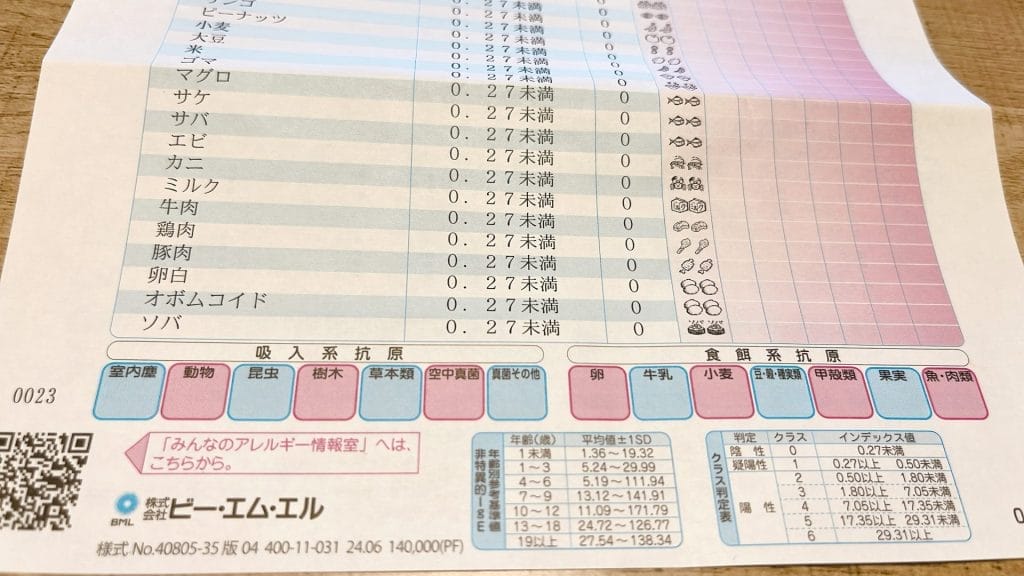The other day, I went to Machida City in Tokyo.
While I was there, I visited Shonan Beauty Clinic near Machida Station to get an allergy test.
Why did I decide to take an allergy test? Well, I had been curious for a while but never found the right time to go.
When I learned that I could get tested near Machida Station, I decided to take the test while I was in the area.
The test was done by taking a blood sample.
Of course, I didn’t receive the results on the spot, so I had to return to get them later.
Now that I’ve received the results, I thought I’d share them on my blog.

And as for the test results…
Guess what…








They tested for 39 different allergens, and all came back negative (0)! 😆
I thought I’d have at least one allergy, but it turns out I’m allergy-free.
This is such a relief!
By the way, I’ve listed some of the possible causes of allergies below. There seem to be quite a few.
1. Genetic factors
Allergic tendencies are heavily influenced by genetics.
If a parent has allergies, their child is more likely to have them as well. This is called the atopic predisposition.
Especially if both parents have allergies, the child’s risk of developing them increases significantly.
However, it’s not always the same allergen that’s inherited; environmental factors also play a role.
2. Overreaction of the immune system
Allergies occur when the immune system mistakenly identifies harmless substances (allergens) as harmful pathogens (like viruses or bacteria) and reacts excessively.
The main player in this reaction is the IgE antibody (immunoglobulin E).
Sensitization: Upon the first exposure to an allergen, the immune system tags it as “dangerous” and produces IgE antibodies.
These antibodies bind to immune cells like mast cells and basophils.
At this stage, there are no allergy symptoms, but the body is primed to react the next time the same allergen is encountered.
Allergic reaction: When the same allergen reenters the body, it binds to the IgE antibodies already attached to mast cells and basophils.
This triggers the release of large amounts of histamine and other inflammatory substances from these cells.
This leads to allergy symptoms like a runny nose, itchy skin, or asthma.
3. Environmental factors and early exposure
The likelihood of developing allergies is also influenced by environmental factors.
For example, the hygiene hypothesis suggests that early exposure to allergens reduces the risk of allergies.
Growing up in an overly clean environment may prevent the immune system from being properly trained, making it more prone to overreacting to harmless substances.
4. Gut health
Recent studies have shown that gut bacteria balance also plays a role in allergies.
Low diversity in gut microbes can lead to improper immune development, causing overreactions to allergens.
The development of the gut environment during infancy is strongly linked to the risk of developing allergies.
5. Lack of immune tolerance
In healthy individuals, the immune system has a mechanism to tolerate certain substances.
In people prone to allergies, this tolerance fails to develop, causing the immune system to mistakenly attack harmless substances.
6. Other factors
Stress and hormonal changes (especially during puberty or pregnancy) can also trigger or worsen allergies.
So if you’re even slightly concerned, it’s worth getting tested.
In my case, since it was an out-of-pocket expense, the test cost ¥15,000.
That’s all about my experience with the allergy test.